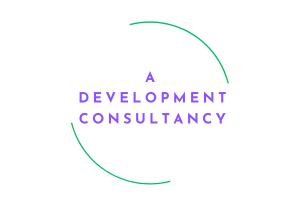BOOK REVIEW: Your Brain at Work by David Rock
We are often asked for book recommendations, especially from our coaching clients, so we decided to introduce a series of book reviews, where we share some of our favourite reads and the key messages from the books.
For our first book, we’d like to introduce you to is “Your Brain at Work”, by David Rock.
Book title: Your Brain at Work Author: David Rock
Rating: ***** Category: Easy to read
What’s it about?
By understanding how our brains work, the author has provided many strategies to help us become more focused and overcome distractions. This enables us to make the most of our thinking capabilities.
The detail
Every day, we’re surrounded by distractions – the ping of a Teams notification or an email alert, automatic reminders about our next meeting, various apps and other interruptions. But did you know that one study found that these constant distractions reduced performance in an IQ test by an average of 10 points? This is similar to the reduction in mental capacity that we experience after missing a night’s sleep! One explanation for this effect is that these interruptions force the brain to spend too much time in a state of alertness.
Put simply, we have to prevent these distractions from gaining our attention. One way to do this is to develop the habit of “vetoing” those behaviours that distract us – for example, turning off all communication devices whenever we want to do any active thinking.
If we want to maintain a good level of performance, we have to conserve the brain’s energy for the most important tasks.
This means prioritising certain tasks above others; however, be aware that the very act of prioritising is a task that drains energy, so ensure you prioritise when you’re feeling alert and fresh.
An alternative way of conserving energy is to turn tasks into routines. Our brain recognises routines and creates the necessary neural pathway for what is to follow, allowing us to focus on the task ahead. Our Senior Talent Consultant, Daniel Roberts-Green, says he often does his best thinking while driving.
That’s because he drives so often that his brain recognises it as a routine, allowing him the time to think creatively (whilst still looking out for red lights of course!).
David Rock writes that optimal mental performance requires just the right level of arousal of your brain:
- For us to be alert, our brains require exactly the right level of norepinephrine, the chemical that’s triggered when we’re scared. Fear activates our alertness, and alertness is a crucial part of being focused.
- For our interest to be aroused, our brains need just the right amount of another chemical – dopamine. Dopamine is triggered whenever we experience something new or unexpected, meaning that it’s an important factor in our becoming interested in something.
- For our brains to function at their peak, it’s crucial that the levels of norepinephrine and dopamine are just right – not too high and not too low.
If levels are low, our performance will be poor; however, if they’re high, performance suffers due to extreme stress. Levels in the “sweet spot” generates a positive level of stress which helps to focus our attention.
The good news is that we can influence our level of arousal. If you’re not sufficiently focused, try imagining what will happen if you miss a deadline – this can boost your norepinephrine levels. Conversely, if you’re feeling over-aroused, try a relaxing walk – this tends to generate activity in other parts of the brain.
The brain constantly craves certainty and autonomy. As brain scans reveal, when our need for certainty and autonomy is satisfied, we experience a strong sense of reward. Scientists have shown that we feel less stressed when faced with a stress-inducting task over which we have control and autonomy than when we have to deal with a similarly stressful task without a sense of control.
The strong emotional response we experience when we lack control and autonomy stems from our appraisal of the situation. Fortunately, we can change our appraisals, thus transforming our emotional responses. One kind of reappraisal is humour, as it involves a shift in perspective that can transform one’s experience of a situation from gravely serious to funny and light-hearted. By reappraising, you can better manage the strong emotions generated by the lack of certainty and autonomy.
Summary
It’s a common misconception that if you aren’t delivering your best work, you should simply try harder. Often, however, the brain just needs more fuel and rewards to keep going. The reason for this is that your brain gets tired and distracted easily, and is strongly rewarded by status, certainty and control. So, for your brain to work optimally, it helps to have more choice and autonomy in your life and, most importantly, train your ability to reflect on your thinking.
Who would benefit from reading this book?
Anyone interested in how the human brain works; anyone looking to work smarter, not harder.
What we liked about the book
- The use of storytelling makes this an easy and interesting read
- Easily actionable advice on how to manage distractions and how/where to focus energy
What we didn’t like
- Nothing!
More about the author, David Rock
Dr. David Rock coined the term ‘neuroleadership’ and is the co-founder and CEO of the NeuroLeadership Institute (NLI). The Institute is a 23-year-old cognitive science consultancy that has advised over 50% of the Fortune 100.
Other books by this author
Quiet leadership
Coaching with the brain in mind
Handbook of neuroleadership
At People Business we’re encouraged to research and read to keep up to date and to delve deeper into areas that our professional lives take us. If you’re interested in speaking to one of our experienced and informed consultants, do get in touch.




